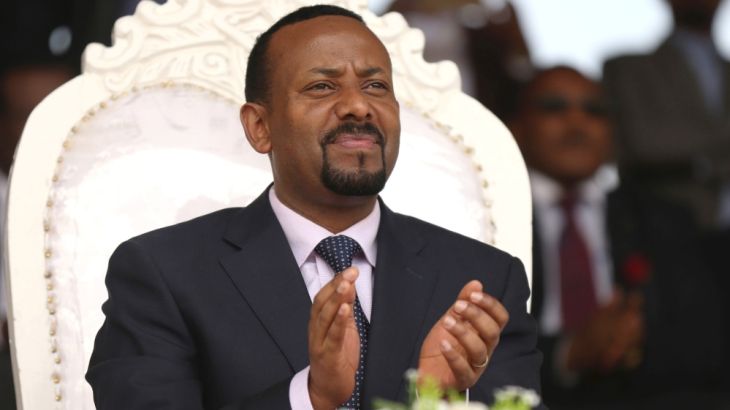Ethiopian parliament approves amnesty for political prisoners
New law makes it possible to grant amnesty for crimes against the constitution and involvement in armed struggle.

Ethiopia’s parliament has passed an amnesty for thousands of political prisoners, thousands of whom have been freed in recent months.
Since assuming office in April, Prime Minister Abiy Ahmed has introduced a series of unprecedented reforms and has overseen the release of jailed dissidents.
Thousands of prisoners, including several senior opposition leaders accused of charges such as incitement to topple the government, have overall been pardoned since January – even before Abiy’s election by the ruling Ethiopian People’s Revolutionary Democratic Front (EPRDF) coalition.
“The law grants amnesty for individuals and groups either under investigation or convicted on treason, crime against the constitutional order and armed struggle,” state-affiliated news agency Fana reported on Saturday.
The law is expected to enable hundreds of exiled opposition activists and groups to return home from countries such as Eritrea, Kenya, Somalia and the United States and pursue peaceful political careers in Ethiopia.
The parliamentary approval comes two weeks after the cabinet approved the bill on July 5. Every legislator in the 547-seat parliament is from the ruling EPRDF coalition.
Abiy this month sacked the head of the prison service and other senior prison officials hours before a Human Rights Watch report detailed torture at one notorious prison and urged the government to hold officials to account.
The parliament also ruled that the Oromo Liberation Front and the Ogaden National Liberation Front, two secessionist groups, and the Ginbot 7, an exiled opposition movement, were no longer terrorist groups.
Abiy has been applauded for his moves to shake up the status quo in a nation long criticised by rights groups for the brutality of its security forces, the jailing of dissidents and its narrow political space.
Abiy came to power after his predecessor, Hailemariam Desalegn, stepped down amid widespread anti-government protests.
In recent weeks, he also relaunched diplomatic relations with longtime enemy Eritrea, officially ending a border war that claimed tens of thousands of lives between 1998 and 2000.
Abiy has prioritised reconciling with various opposition groups and has also embarked on economic reforms.